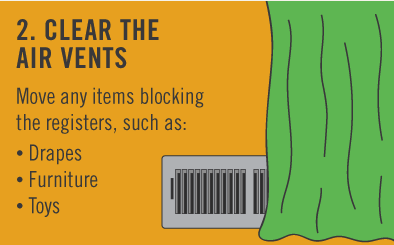The Future Of Home Home Heating - Just How Heat Pump Technology Is Developing
The Future Of Home Home Heating - Just How Heat Pump Technology Is Developing
Blog Article
Created By-David Oliver
Heat pumps will certainly be a vital modern technology for decarbonising heating. In a scenario consistent with governments' introduced energy and environment commitments, their international capability doubles by 2030, while their share in home heating rises to one-quarter.
They work best in well-insulated homes and rely upon electricity, which can be supplied from an eco-friendly power grid. Technical advancements are making them extra effective, smarter and less costly.
Fuel Cells
Heat pumps use a compressor, cooling agent, coils and fans to move the air and heat in homes and devices. They can be powered by solar energy or electrical power from the grid. They have been obtaining popularity as a result of their inexpensive, quiet procedure and the capacity to generate electrical energy throughout peak power need.
Some companies, like IdaTech and BG MicroGen, are dealing with fuel cells for home heating. Click To See More can change a gas central heating boiler and produce some of a residence's electrical demands with a link to the power grid for the rest.
Yet there are reasons to be skeptical of using hydrogen for home heating, Rosenow says. It would be expensive and ineffective contrasted to various other innovations, and it would certainly include in carbon emissions.
Smart and Connected Technologies
Smart home modern technology allows house owners to connect and regulate their devices remotely with the use of mobile phone apps. For instance, clever thermostats can learn your heating choices and immediately adapt to optimize power usage. Smart illumination systems can be managed with voice commands and immediately turn off lights when you leave the room, reducing energy waste. And clever plugs can monitor and handle your electrical use, permitting you to determine and restrict energy-hungry devices.
The tech-savvy household illustrated in Carina's interview is an excellent illustration of exactly how passengers reconfigure space heating methods in the light of brand-new wise home innovations. They rely on the devices' automated attributes to perform everyday changes and concern them as a convenient methods of conducting their heating methods. As such, they see no factor to adjust their practices better in order to enable flexibility in their home energy demand, and interventions focusing on doing so might face resistance from these families.
Power
Considering that warming homes accounts for 13% people emissions, a button to cleaner choices might make a huge difference. Yet the modern technology deals with obstacles: It's pricey and calls for comprehensive home restorations. And it's not always compatible with renewable energy resources, such as solar and wind.
Till lately, electrical heat pumps were also pricey to take on gas designs in the majority of markets. Yet https://codyenwem.anchor-blog.com/9600745/checking-out-the-environmental-benefits-of-warmth-pumps-a-lasting-home-heating-solution in layout and products are making them a lot more economical. And much better cold climate performance is enabling them to operate well also in subzero temperatures.
The following step in decarbonising heating may be using warm networks, which attract heat from a central resource, such as a close-by river or sea inlet, and disperse it to a network of homes or structures. That would certainly reduce carbon emissions and permit families to capitalize on renewable energy, such as environment-friendly electrical power from a grid provided by renewables. This choice would be less pricey than switching to hydrogen, a nonrenewable fuel source that requires brand-new framework and would only reduce CO2 emissions by 5 percent if paired with boosted home insulation.
Renewable Energy
As electricity prices go down, we're starting to see the very same pattern in home heating that has driven electric cars and trucks into the mainstream-- yet at an even much faster speed. The strong climate case for impressive homes has actually been pushed better by brand-new research study.
Renewables make up a significant share of modern warm intake, but have actually been given minimal policy attention worldwide compared to other end-use markets-- and also much less interest than electricity has. Partially, install a heat pump shows a mix of customer inertia, split rewards and, in lots of nations, aids for fossil fuels.
New modern technologies might make the shift much easier. For example, heatpump can be made extra energy reliable by changing old R-22 refrigerants with new ones that don't have the high GWPs of their predecessors. Some experts also visualize district systems that attract heat from a neighboring river or sea inlet, like a Norwegian fjord. The cozy water can after that be made use of for heating & cooling in a neighborhood.